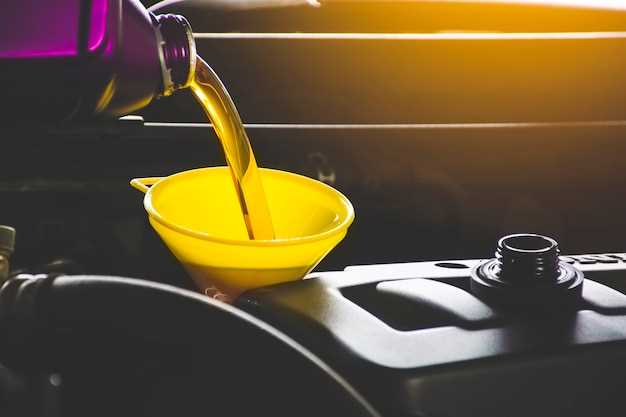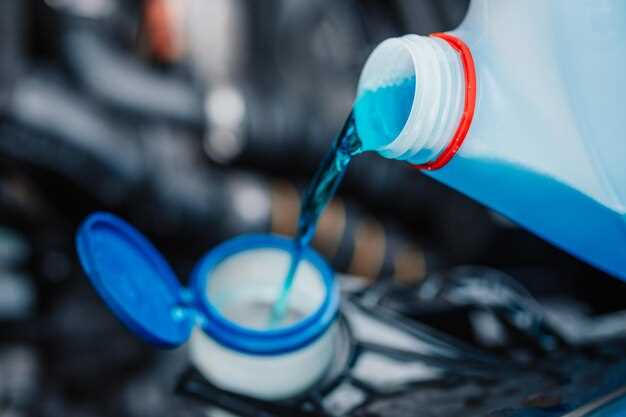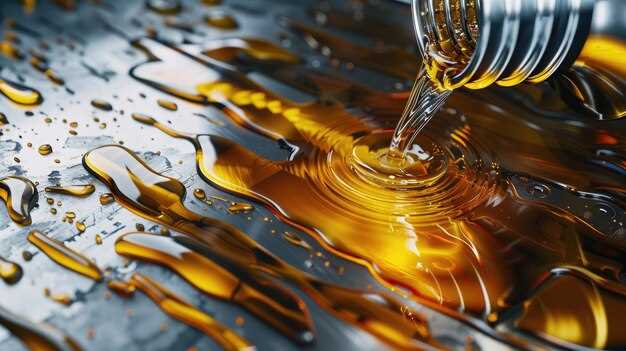

For enthusiasts of classic and older vehicles, maintaining optimal performance is paramount. As we delve into the world of automotive care, one essential aspect that cannot be overlooked is the use of additives. These specially formulated products can significantly enhance the efficiency and longevity of an engine, ensuring that vintage rides run as smoothly as they did when they first hit the road.
Classic vehicles often face unique challenges due to outdated fuel formulations and an absence of modern technology. Fuel additives play a crucial role in bridging this gap, revitalizing the engine components and improving overall performance. From improving combustion efficiency to preventing fuel system corrosion, the right additive can breathe new life into these beloved machines.
In this article, we will explore the top fuel additives currently on the market tailored specifically for classic and older vehicles. Understanding how these products function and selecting the right ones for your needs can make a significant difference in your vehicle’s performance and overall driving experience.
Choosing the Right Fuel Additive for Vintage Engines

Selecting the appropriate fuel additive for vintage engines requires careful consideration of the engine’s specific characteristics and performance needs. Classic vehicles are often equipped with older technology, which may not be compatible with modern fuels or additives. Understanding the composition of the fuel and how it interacts with the engine is crucial for maintaining optimal performance.
When assessing a fuel additive, it is essential to look for those designed specifically for classic engines. These additives often contain unique formulations that help protect older fuel systems from corrosion and deposits, which can hinder performance over time. Ingredients like detergents and stabilizers can clean the fuel system and enhance combustion efficiency, leading to better power output.
Another vital aspect is the octane rating of the fuel combined with the additive. Vintage engines may require higher octane fuel to avoid knocking and to ensure smooth operation. Opt for additives that can boost octane levels, enhancing the engine’s performance while maintaining its integrity.
Furthermore, evaluate any environmental factors that could affect engine performance, such as moisture in the fuel, which can lead to rust and fuel system damage. Additives designed to absorb moisture and prevent oxidation are beneficial for preserving vintage engines. Regular use of a quality additive can prolong engine life and improve reliability.
In conclusion, the right fuel additive not only enhances the performance of vintage engines but also safeguards them against potential damage. By understanding the specific requirements of these classic vehicles and selecting appropriate products, owners can ensure their engines run smoothly and efficiently for years to come.
How Fuel Additives Improve Performance in Classic Cars
Fuel additives play a crucial role in enhancing the performance of classic cars. These vehicles often require specific care and attention due to their age and unique engineering. Additives formulated specifically for older engines can address common issues such as carbon buildup, fuel stability, and combustion efficiency.
One of the primary benefits of using a fuel additive is the improvement in combustion quality. Many classic cars were designed to run on fuels that are no longer available or have significantly changed in composition. Additives can help optimize the fuel used, allowing for better combustion and increased performance. This leads to smoother operation, improved power output, and greater overall efficiency.
Cleaning agents within fuel additives can effectively dissolve deposits that accumulate over time. Carbon deposits can hinder engine performance by affecting the combustion process and reducing fuel efficiency. By regularly adding these cleaning agents to the fuel, owners can maintain optimal engine performance and prolong the lifespan of critical components.
Furthermore, fuel additives often include enhancements for lubrication and corrosion protection. Classic engines may have components that are more susceptible to wear and tear due to outdated technology. An effective fuel additive will provide necessary lubrication, protecting engine parts and ensuring they function harmoniously while increasing performance.
In summary, utilizing high-quality fuel additives not only restores but also enhances the performance of classic vehicles. By improving combustion, cleaning deposits, and offering lubrication, these additives enable older cars to run more efficiently and reliably on today’s fuels.
Top Recommendations for Fuel Additives Based on Engine Type

When choosing fuel additives for classic and older vehicles, it’s essential to consider the specific engine type to enhance performance effectively. Different engines may require distinct formulations to address their unique needs.
For carbureted engines, a high-octane fuel additive is often recommended. These vehicles benefit from benzene boosters, which help prevent engine knocking and provide a cleaner burn, ultimately improving performance. Products containing lead substitutes are also advantageous, as they replicate the lubricating properties of leaded fuels, preserving engine components.
For older fuel injection systems, an injector cleaner additive is critical. These systems tend to accumulate deposits over time, affecting performance. Choose an additive that dislodges carbon deposits and enhances fuel flow, leading to increased power and efficiency. Look for products with polyether amine (PEA) for optimal cleaning capability.
For classic diesel engines, a cetane booster additive is ideal. This type of engine requires additives that enhance combustion quality, resulting in smoother operation and improved mileage. Additionally, anti-gel additives can help maintain performance in colder temperatures by preventing fuel from thickening.
Lastly, for racing engines or high-performance builds, a specialized octane booster can significantly enhance engine performance. These additives raise the fuel’s octane rating, allowing the engine to run at higher compression ratios and yield maximum power output. Always ensure that the additive is compatible with your specific engine type to prevent adverse effects.







